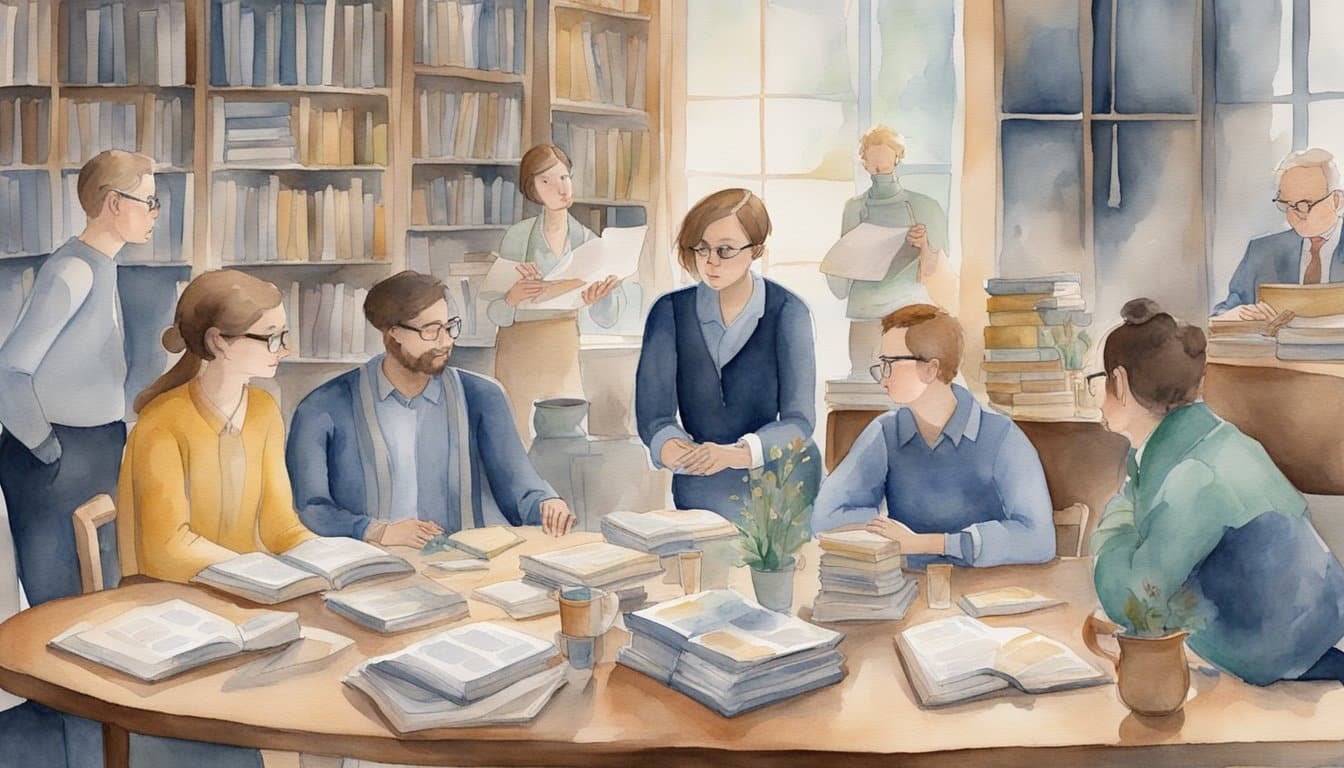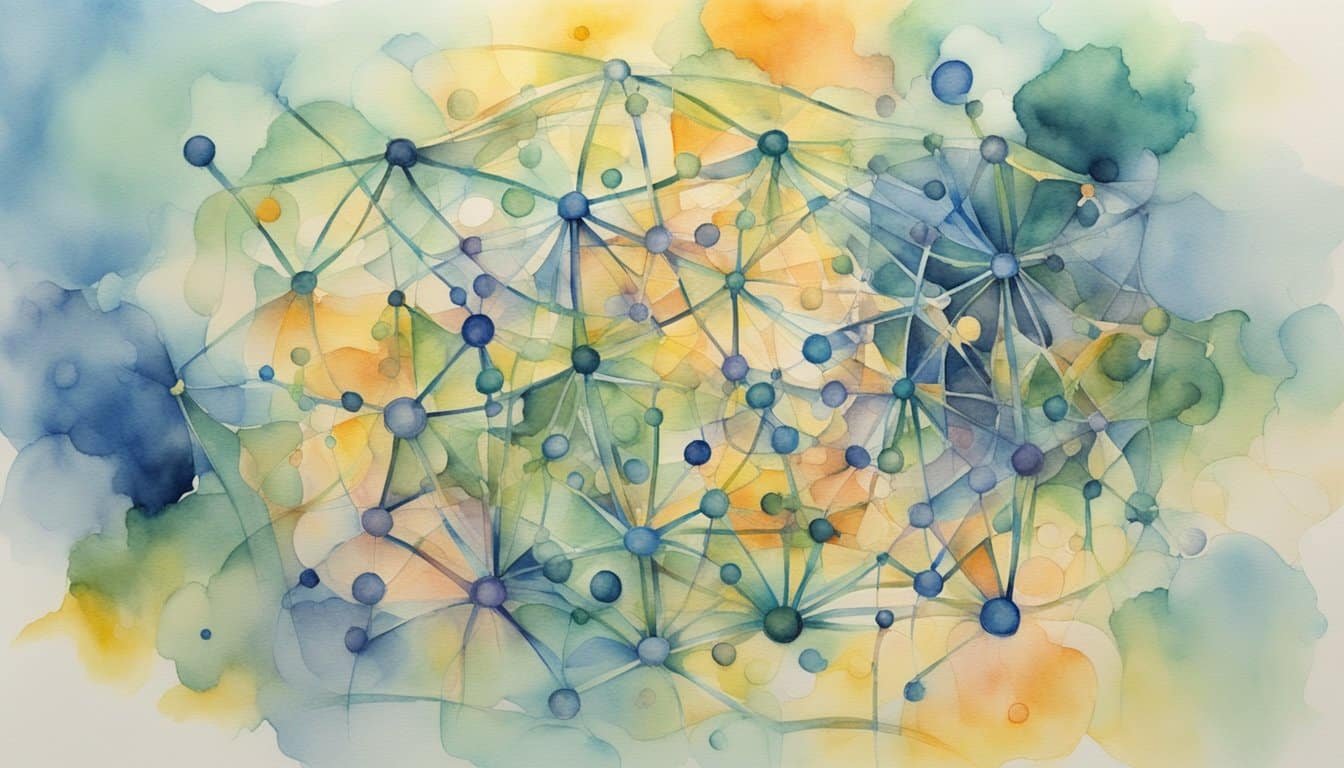Psychological Foundations
To understand why people believe in conspiracy theories, it’s essential to explore the underlying psychological mechanisms that drive these beliefs. Factors such as cognitive biases, emotional states, and personality traits all play significant roles.
Cognitive Biases and Conspiracies
Cognitive biases shape our understanding of the world, often leading us away from rational thought. A key cognitive bias related to conspiracy theories is confirmation bias, where individuals favor information that confirms their preexisting beliefs. Another is motivated reasoning, which is the subconscious tendency to fit new information into a preferred narrative. These biases can make ambiguous patterns seem sinister or intentional, promoting conspiratorial interpretations.
- Intuition vs. analytical thinking: Those who rely more on intuitive thinking are sometimes more prone to endorse conspiracy theories. Intuition can lead to snap judgments, where a gut feeling replaces thorough analysis.
The Role of Emotion: Anxiety and Stress
Emotions heavily influence the belief in conspiracy theories. Anxiety and stress can increase a person’s susceptibility to conspiratorial thinking as they search for certainty in an uncertain world. Such states of emotion can lead individuals to find solace in theories that appear to explain the source of their discomfort.
- Searching for control: When people feel anxious or stressed, they may grasp at conspiracy theories as a way to feel like they have some control over the inexplicable or intimidating aspects of life.
Personality Traits and Belief in Conspiracies
Certain personality traits are linked with a higher likelihood of believing in conspiracy theories. Individuals with a strong need for uniqueness often gravitate towards conspiracy theories to distinguish themselves from others. A sense of superiority, too, can play a role as it creates a platform for people to believe they understand something others don’t.
- Lower self-esteem: Sometimes, those with lower self-esteem may embrace conspiracy theories as a means to elevate their standing, adhering to beliefs that seem exclusive or privileged.
- Individual differences: Personality traits influence whether a person finds a conspiracy theory believable. For instance, individuals who highly value intuition over evidence-based reasoning might be more inclined to accept conspiratorial explanations.
Societal and Cultural Contributions

Conspiracy theories are not just a product of idle minds; they are often rooted in deep societal and cultural contexts. From the influence of media to historical events, various factors contribute to why individuals and groups adopt conspiracy beliefs.
Media Influence: Internet and Social Media
The explosion of the internet and social media has given conspiracy theories a fertile ground to proliferate. Easy access to information coupled with algorithms that promote content engagement can create echo chambers where misinformation spreads rapidly. It’s not just fringe websites anymore; mainstream platforms inadvertently allow for the dissemination of unsubstantiated claims, from the moon landing being faked to elaborate tales of QAnon.
Historical and Real Conspiracies
Real conspiracies throughout history lend credence to the possibility of others. Indeed, validated conspiracies, such as the Watergate scandal or the Tuskegee syphilis experiment, can sow seeds of doubt and contribute to a cultural landscape that is receptive to suspecting hidden agendas. Recognized incidents make the leap to believing in shadowy plots behind events like 9/11 or COVID-19, not altogether illogical in the public eye.
Influence of Community and Social Identity
Being part of a community is a central aspect of human identity, and beliefs, including conspiracy theories, are often a shared characteristic. Conspiracy theories can strengthen in-group bonds, usually by defining a common perceived enemy, such as government control or Hollywood elitism. These shared narratives provide an explanation for complex issues like climate change or vaccine hesitancy amidst uncertainty, reinforcing collective identity.
Impact and Implications

Exploring the impact and implications of conspiracy theories reveals significant effects on individuals and society. These theories can shape beliefs, drive actions, and influence policy, making it crucial to understand their consequences and how to effectively address them.
Consequences of Conspiracy Theories
Conspiracy theories can create a climate of skepticism towards established facts and truth, potentially undermining public trust in science and experts. Research indicates that such theories can have tangible effects on health by fostering distrust in medical advice or dissuading individuals from vaccinations. Likewise, conspiracy theories related to global warming may lead to opposition against environmental policies, hindering efforts to tackle climate change.
The belief in cover-up narratives can erode security and safety, as seen with the conspiracy theories surrounding the death of Princess Diana, where misperceptions influenced public opinion and brought about unforeseen social dynamics. To illustrate, the Perceived and actual influence of theories surrounding the death of Princess Diana study showed how belief in such narratives can impact sentiment towards various social and political matters.
Moreover, the implications extend to education, where conspiracy theories can distort historical understanding and complicate teaching. A comprehensive treatment of this subject is discussed in a book aptly named Consequences of conspiracy theories, which highlights the wide-reaching impact of misinformation. For further reading on the societal impact, one might consider the research detailed in this book.
Strategies for Addressing Conspiracy Theories
Addressing conspiracy theories requires a multifaceted approach, combining evidence-based communication with efforts to bolster critical thinking skills. Education plays a pivotal role in equipping individuals with the tools to debunk false narratives and appreciate the nuances of scientific research.
Initiatives aiming to foster trust through transparency and engagement with the public are essential. Increasing accessibility to factual information and promoting dialogue between communities and specialists can go a long way. For example, the article Why conspiracy theories matter: A social psychological analysis highlights the significance of understanding why people are attracted to these theories, which can inform strategies to mitigate their influence.
Prominent institutions and media outlets play a key role in disseminating accurate information and enlisting the help of experts to clarify misconceptions. These stakeholders must work together to navigate the complexities of human psychology, belief systems, and social dynamics to reduce the foothold of conspiracy theories on public consciousness.

